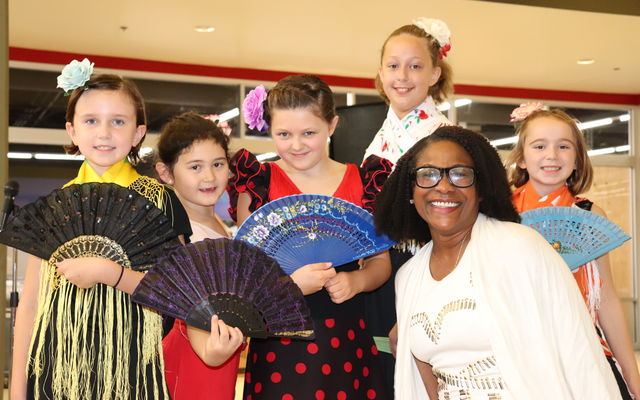Published May 19 2022

Plus, retail study to identify business gaps in Bellevue and rules set for remote board and commission attendance
On Monday, the City Council voted unanimously to continue work toward establishing a cross-cultural community center in Bellevue with associated cultural programming and event opportunities. This after receiving the latest data and results from an expanded feasibility study that explored operating models, possible partnerships and both near- and long-term strategies for supporting cross-cultural programming and maintaining an associated facility.
The study revealed there is strong community interest and demand in supporting cross-cultural engagement and cultural spaces. The results also showed a desire for any cross-cultural center to be city-supported but community-led, meaning the city must engage with nonprofit partners to support the project development and center operations. Initial cost estimates to develop a cross-cultural center were $35 million. Annual operating costs are estimated at $1.9 million, a majority of which would have to come from donors and organizations in the community. The study recommended the city develop strategies that support ongoing, long-term sustainability of such a facility.
The city will now work to identify potential community partners in the multi-year development process for a cross-cultural center while exploring programming needs and opportunities for cultural programming and activities at our existing community centers.
The full discussion is available on Bellevue Television replay.
Retail study to identify business gaps in Bellevue
Later, councilmembers received a report detailing the scope of an upcoming citywide retail study in Bellevue based on stakeholder feedback conducted over the last several months. Through sales tax, the retail sector in Bellevue makes up 32% of the city’s overall tax revenue collection and is a key focus in the latest Economic Development Plan.
The retail study will specifically entail a market analysis of the current retail business conditions and trends in the city, including regional competitiveness. This analysis aims to collect data to better understand specific business and service needs in the community and gaps where community members are going outside of the city for certain services. The study will also look at adding capacity in key business districts outside of downtown, opportunities for preserving business space while creating new business opportunities for small, independent businesses in Bellevue, and developing recommendations for preservation and growth of Bellevue’s auto sales sector. An overarching theme in the work is a commitment to supporting a diverse business community in Bellevue and to ensure diverse voices and organizations are represented in the process.
The city will begin the process of selecting a vendor in June to conduct the survey later this year with a goal of reporting the findings in early 2023. The full discussion is available through Bellevue Television replay and the presentation is available in the meeting materials.
Rules set for remote board and commission attendance
In other business, the City Council voted unanimously to reinstate remote attendance limits for members of Bellevue advisory boards and commissions, with modifications to make meeting participation more accessible and flexible to all.
The city’s prior limits on remote meeting attendance were suspended during the COVID-19 pandemic when board and commission meetings transitioned to fully virtual sessions. As the city shifted back to in-person meetings this year, the council considered whether more remote meeting attendance flexibility could allow more people to join boards and commissions who might not otherwise be able to participate due to the in-person minimum standards for attendance.
The council voted unanimously to adopt an ordinance to reinstate the meeting standards, encouraging in-person meeting attendance whenever practicable but allowing for up to three members to participate remotely in any given meeting, with no limit to how many meetings a person can attend remotely. Any remote participation must be approved in advance by the board or commission. In addition, the presiding officer must be physically present at the meeting or pass that role on to another member who is attending the meeting in person.
The council will assess the effectiveness of the new level of flexibility and reassess the ordinance in one year. The full ordinance language and further detail is in the meeting materials.
